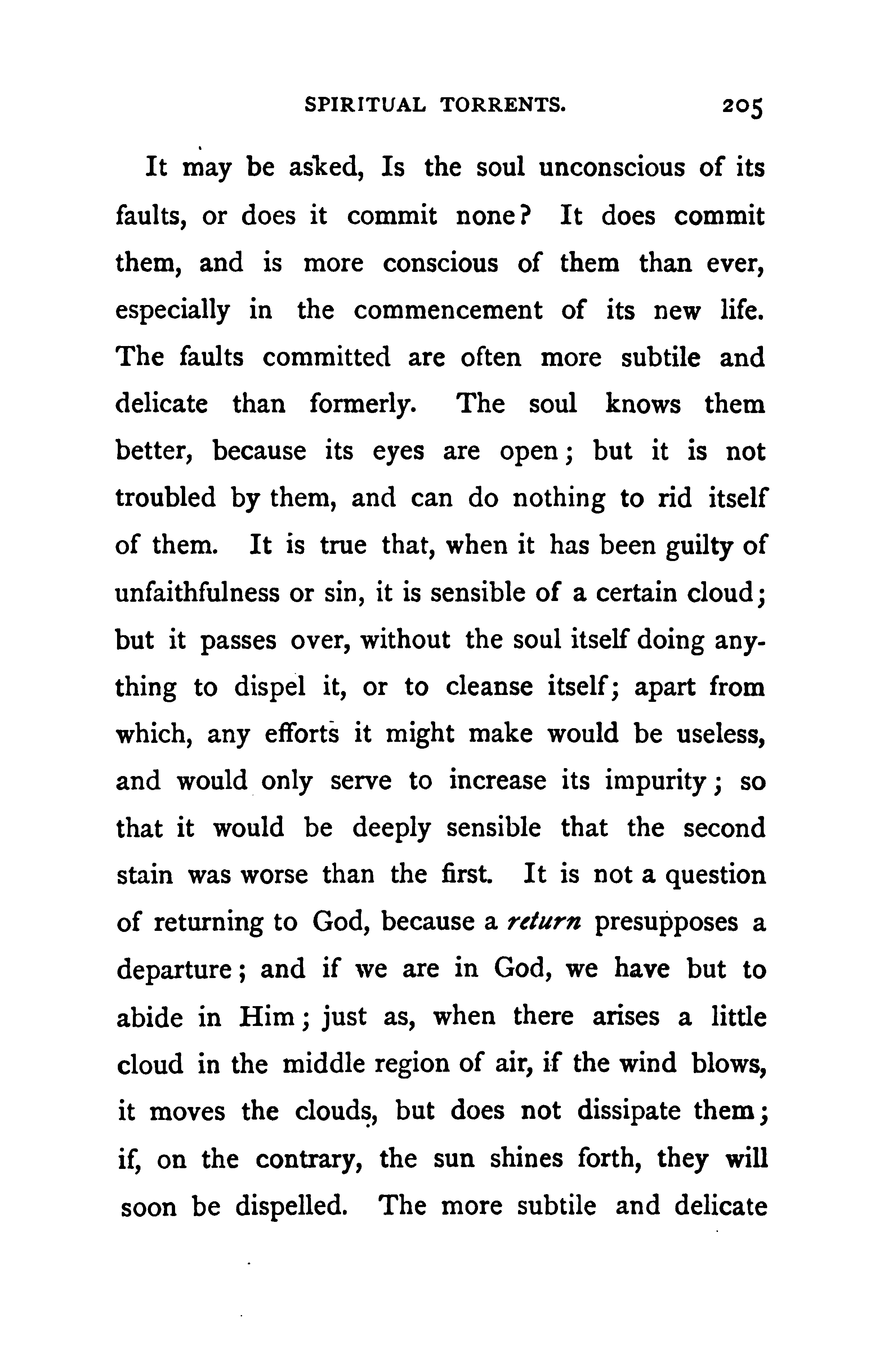It
may
be
aslced,
Is
the
soul
unconscious
of
its
faults,
or
does
it
commit
none?
It
does
commit
them,
and
is
more
conscious
of
them
than
ever,
especially
in
the
commencement
of
its
new
life.
The
faults
committed
are
often
more
subtile
and
delicate
than
formerly.
The
soul
knows
them
better,
because
its
eyes
are
open;
but
it
is
not
troubled
by
them,
and
can
do
nothing
to
rid
itself
of
them.
It
is
true
that,
when
it
has
been
guilty
of
unfaithfulness
or
sin,
it
is
sensible
of
a
certain
cloud;
but
it
passes
over,
without
the
soul
itself
doing
any-thing
to
dispel
it,
or
to
cleanse
itself;
apart
from
which,
any
efforts
it
might
make
would
be
useless,
and
would
only
serve
to
increase
its
impurity
;
so
that
it
would
be
deeply
sensible
that
the
second
stain
was
worse
than
the
first.
It
is
not
a
question
of
returning
to
God,
because
a
return
presupposes
a
departure;
and
if
we
are
in
God,
we
have
but
to
abide
in
Him
;
just
as,
when
there
arises
a
little
cloud
in
the
middle
region
of
air,
if
the
wind
blows,
it
moves
the
clouds,
but
does
not
dissipate
them;
if,
on
the
contrary,
the
sun
shines
forth,
they
will
soon
be
dispelled.
The
more
subtile
and
delicate

